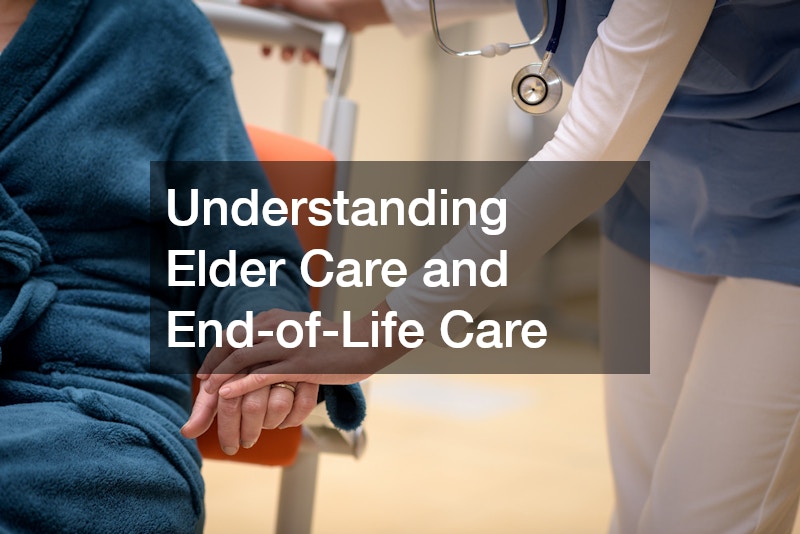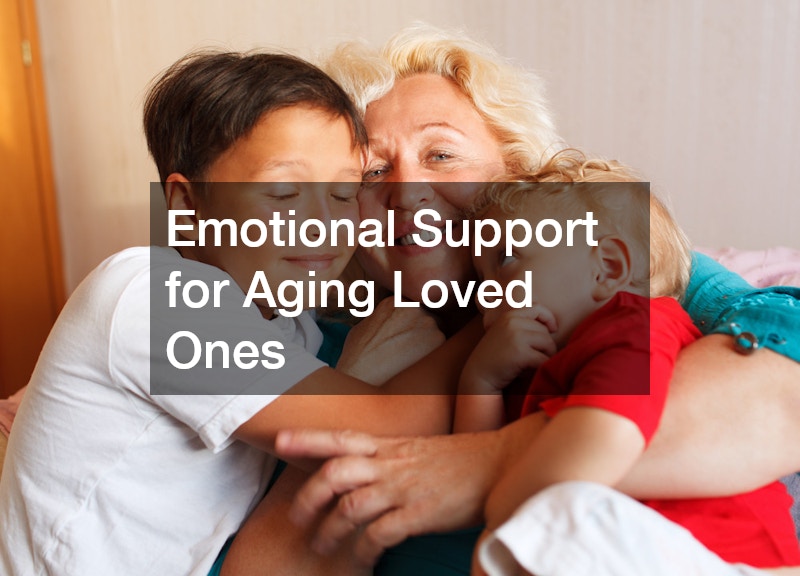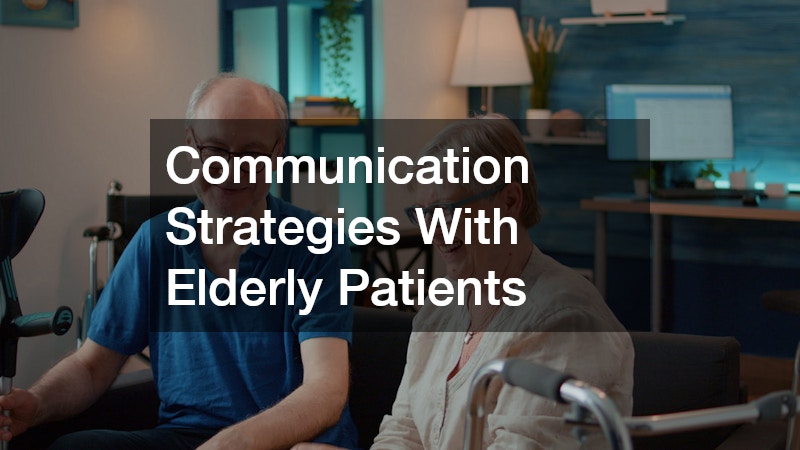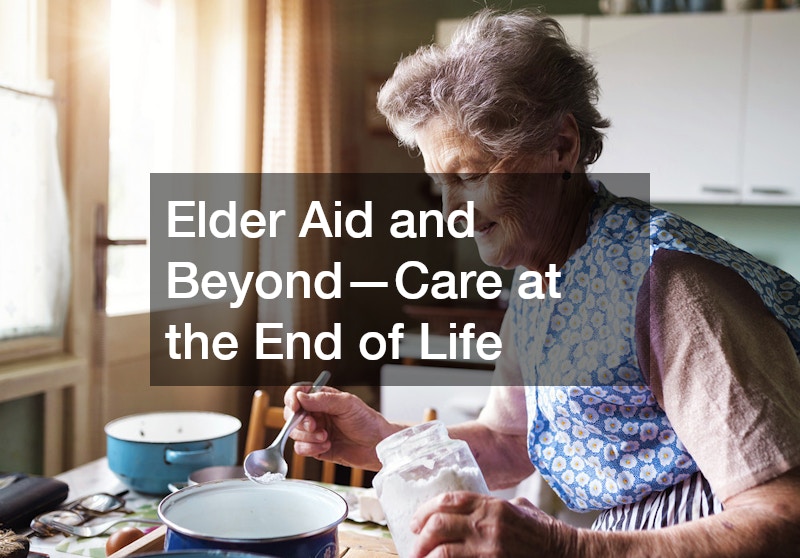Providing compassionate and comprehensive care for elderly individuals at the end of life is a complex and significant responsibility. Elder aid encompasses a wide range of services and support systems to enhance the quality of life for aging adults as they face the physical, emotional, and social challenges of their later years. This stage requires medical attention, thoughtful planning, emotional understanding, and respect for individual preferences. Families, caregivers, and healthcare professionals must work collaboratively to ensure that care is dignified, personalized, and effective.
Numerous decisions and adjustments mark the journey toward end-of-life care. Elder care programs address these needs holistically, recognizing the importance of comfort, autonomy, and dignity. The approach must be multidimensional, from managing chronic illnesses to providing emotional support and navigating legal considerations. In this blog, we will explore key aspects of elder care and beyond, illuminating the essential components that contribute to meaningful care at the end of life.
Understanding Elder Care and End-of-Life Care

Elder care at the end of life is about managing medical needs and fostering a compassionate environment where respect, empathy, and personalized care take center stage. The aging process brings unique challenges that affect physical health, emotional well-being, and social connections. By understanding the multifaceted nature of elder aid, caregivers and families can better anticipate needs and provide holistic support that honors the individual’s life journey. This comprehensive approach is essential to helping elders navigate the complexities of aging with dignity and comfort.
Understanding Elder Care and End-of-Life is a critical component in ensuring that older adults receive the support they need to live their final years with dignity and comfort. This care extends beyond just medical treatment to include emotional, social, and practical assistance. End-of-life care is a specialized area within elder care that focuses on easing the transition during this sensitive period, prioritizing the quality of life and alleviating suffering. It involves a team-based approach where healthcare providers, caregivers, and family members work together to address the complex needs of the individual.
A critical aspect of providing effective elder aid in this context is medical inventory tracking, which ensures that all necessary medications and supplies are readily available and properly managed. This system helps prevent delays in treatment and reduces errors, contributing to smoother care delivery. For those receiving end-of-life care at home or in facilities, medical inventory tracking supports caregivers by streamlining access to vital resources, thus improving the overall experience for both patients and families.
The Role of Family in Elder Care
Family involvement is often the cornerstone of elder care, as relatives provide emotional support, help with daily activities, and advocate for their loved ones’ preferences and needs. The role of family members can vary widely, from offering companionship and assistance with healthcare decisions to managing finances and coordinating professional care services. Recognizing the family’s essential role helps create a supportive environment where elderly individuals feel valued and understood during the end-of-life phase.
In more specific terms, family members may find themselves navigating complex medical or dental concerns, such as dental implants, that affect an elder’s overall health and comfort. Proper attention to dental care within elder care is crucial because oral health impacts nutrition, self-esteem, and general well-being. Families who understand this can work closely with healthcare providers to ensure that treatments like dental implants are considered when appropriate, enhancing both the physical and emotional quality of life for their aging relatives.
Emotional Support for Aging Loved Ones

Emotional support is a vital aspect of elder care, especially as individuals approach the end of life. Feelings of isolation, anxiety, and fear can become more pronounced during this time, making compassionate care essential. Emotional support helps elders maintain a sense of connection and peace, reducing stress and promoting mental well-being. Caregivers and family members play a crucial role in creating a nurturing environment where feelings can be openly expressed and validated.
A specific element within emotional support is the consideration of meaningful symbols and rituals, such as selecting a headstone, which often provides comfort to both the elder and their family. Thoughtful discussion about such memorial choices allows elders to participate in planning, offering a sense of control and closure. Incorporating these conversations into elder aid routines helps address emotional needs while honoring the individual’s values and legacy.
Managing Pain and Symptom Relief
Effective pain management is one of the cornerstones of quality elder care and end-of-life care. Aging individuals often experience chronic pain and discomfort, which can severely impact their quality of life. Managing these symptoms involves careful assessment and tailored treatment plans that prioritize the patient’s comfort while minimizing side effects. Pain relief not only improves physical well-being but also supports emotional health by reducing distress and enabling greater participation in daily activities.
In practice, managing pain and symptoms sometimes intersects with decisions about burial service arrangements, which can arise sooner when pain is uncontrolled or complications develop. Understanding the full spectrum of elder care includes preparing families for these possibilities and offering guidance on planning burial services with dignity and respect. This preparation can alleviate anxiety and ensure that the elder’s wishes are honored in a timely manner.
Legal and Financial Planning for End-of-Life

Legal and financial planning is an essential component of elder care that ensures older adults’ rights and resources are protected as they approach the end of life. This planning involves creating wills, advance directives, and power of attorney documents, as well as managing assets to cover healthcare and living expenses. Addressing these issues early helps prevent confusion and conflict among family members, allowing elders to maintain control over their legacy and care preferences.
A more specific consideration in legal and financial planning sometimes includes medical procedures such as bone grafting, which may affect healthcare costs and insurance coverage. Understanding the financial implications of treatments like bone grafting allows families and caregivers to plan effectively within the elder aid framework. This foresight supports smoother decision-making and helps ensure that the elder’s medical and legal needs are met without unnecessary stress.
Hospice and Palliative Care Options
Hospice and palliative care are vital services within elder care, designed to provide comfort and support to individuals facing serious, life-limiting illnesses. These care options focus on managing symptoms, improving quality of life, and addressing emotional and spiritual needs rather than curing disease. Hospice typically serves those nearing the final stages of life, while palliative care can be provided alongside curative treatments. Both approaches emphasize a compassionate, patient-centered model that respects the wishes and dignity of elders.
More specifically, hospice and palliative care often involve coordinating specialized pain jobs, where trained professionals apply targeted treatments to relieve chronic or acute pain. These interventions are integral to elder care because they reduce suffering and enhance comfort, allowing elders to spend their remaining time in peace. Pain management strategies tailored to the individual’s condition help maintain their quality of life and support families through challenging times.
Communication Strategies With Elderly Patients

Effective communication is a cornerstone of successful elder care. Clear, compassionate dialogue between caregivers, healthcare providers, and elderly patients helps build trust, ensures understanding of care plans, and respects the elder’s autonomy. Communication strategies must account for sensory changes, cognitive decline, and emotional sensitivities common in aging populations. Active listening, patience, and the use of simple language can foster more meaningful interactions and improve care outcomes.
In a more focused context, communication often supports programs like cardiopulmonary rehab, where elders require guidance, encouragement, and detailed instructions to manage their recovery and health. Caregivers and therapists must clearly explain the goals and procedures of cardiopulmonary rehab to ensure that elders are motivated and understand the benefits. This targeted communication enhances participation and effectiveness, making it a key part of elder aid.
Cultural Perspectives on End-of-Life Care
Understanding cultural perspectives is essential in elder care because beliefs about death, dying, and care vary widely across communities. Culture influences how families approach end-of-life decisions, rituals, and communication, and it shapes expectations about caregiving roles. Sensitivity to these differences ensures that care is respectful and personalized, honoring the elder’s values and traditions while promoting comfort and dignity.
Specifically, rehab therapists working in elder care settings often encounter cultural preferences that impact therapy approaches and patient engagement. Recognizing and accommodating these cultural nuances can improve therapy outcomes and strengthen the therapeutic relationship. Rehab therapists who are culturally competent are better equipped to deliver care that aligns with the elder’s background and beliefs, enhancing both physical and emotional healing.
Technology’s Role in Elderly Support
Technology has become an increasingly important aspect of elder care, offering innovative solutions to enhance safety, communication, and health monitoring for aging individuals. From wearable devices that track vital signs to apps that remind elders to take medication, technology empowers both caregivers and patients. These tools help maintain independence while providing peace of mind and improving the overall quality of care. As elder aid evolves, integrating technology thoughtfully becomes crucial to meeting modern demands.
More specifically, technology plays a significant role in addressing mental health challenges faced by elders. Tools such as teletherapy platforms, cognitive training apps, and virtual support groups provide accessible mental health resources. These technological interventions can reduce feelings of isolation and depression, offering elder care that reaches beyond physical care to nurture emotional well-being and resilience.
Beyond direct health applications, technology also facilitates social connectivity, which is vital for elders’ emotional health. Video calls, social media platforms, and online communities enable seniors to maintain relationships with family and friends, reducing loneliness and fostering a sense of belonging. In elder care, leveraging these communication tools can bridge geographical distances and encourage ongoing interaction, which is crucial for mental and emotional well-being. As technology becomes more user-friendly and accessible, it holds the potential to transform how care and companionship are delivered.
Preparing for Grief and Bereavement
Preparing for grief and bereavement is an essential but often overlooked component of elder care. Anticipating loss allows families and caregivers to establish support systems and coping strategies that ease the emotional burden after an elder’s passing. Open conversations about grief, rituals, and memory preservation help create a compassionate environment that honors the elder’s life and supports healing for those left behind.
In more focused elder aid settings, memory care programs provide specialized support to individuals experiencing cognitive decline, as well as their families. These programs often include counseling and resources that help prepare loved ones for the grief journey associated with memory loss conditions like dementia. Through compassionate preparation, memory care fosters acceptance and emotional readiness, enhancing the support available during and after end-of-life transitions. Families benefit from resources such as counseling services, support groups, and educational materials that guide them through the grieving process. These supports help normalize the experience of loss and provide coping mechanisms that promote long-term healing.
Summarizing the Essentials of Elder Care and End-of-Life Care
Elder care and end-of-life care encompass a broad spectrum of physical, emotional, legal, and cultural considerations designed to support aging individuals in their final stages of life. Providing comprehensive care means addressing pain management, family involvement, communication, and emotional needs while respecting individual values and traditions. The integration of technology and specialized programs further enriches the quality of elder care, making care more accessible and personalized.
As families and caregivers navigate the challenges of end-of-life care, thoughtful planning and compassionate support are paramount. Understanding the many facets of elder aid—from medical inventory tracking to memory care—enables better preparation and delivery of services that honor dignity and foster comfort. Ultimately, elder care is about creating a respectful, caring environment where individuals can experience peace, connection, and fulfillment in their final chapter.
Looking ahead, the future of elder aid will likely continue to evolve with advancements in healthcare, technology, and a growing emphasis on culturally sensitive and individualized care models. By embracing innovation alongside traditional values of compassion and respect, elder care can better address the diverse needs of aging populations. Continuous education for caregivers, improved communication, and proactive planning are key to ensuring that every elder receives the thoughtful care they deserve. Ultimately, the goal is to create a supportive framework that upholds quality of life and honors the profound significance of life’s final chapter.






